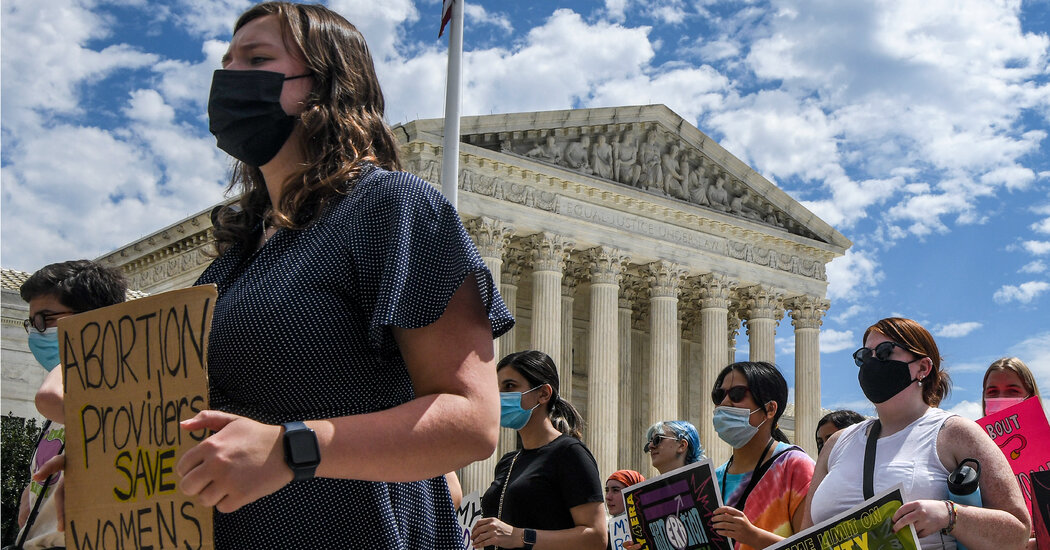The law at issue in the new case was enacted in 2018 by the Republican-dominated Mississippi Legislature. It banned abortions if “the probable gest
The law at issue in the new case was enacted in 2018 by the Republican-dominated Mississippi Legislature. It banned abortions if “the probable gestational age of the unborn human” was determined to be more than 15 weeks. The statute included narrow exceptions for medical emergencies or “a severe fetal abnormality.”
Lower courts blocked the Mississippi statute, calling it a cynical and calculated assault on abortion rights directly at odds with Supreme Court precedents. The justices agreed to hear the case in May, just months after Justice Amy Coney Barrett, who has said she personally opposes abortion, joined the court. She replaced Justice Ruth Bader Ginsburg, a proponent of abortion rights, who died last year.
In their petition seeking Supreme Court review, state officials told the justices that “the questions presented in this petition do not require the court to overturn Roe or Casey,” though they did raise the possibility in a footnote. Once the court agreed to hear the case, the officials shifted their emphasis and began a sustained assault on those precedents.
In a brief filed in July, Ms. Fitch wrote that Roe was “egregiously wrong.”
“The Constitution does not protect a right to abortion,” she wrote. “The Constitution’s text says nothing about abortion. Nothing in the Constitution’s structure implies a right to abortion or prohibits states from restricting it.”
Ms. Fitch told the justices that the scope of abortion rights should be determined through the political process. “The national fever on abortion can break,” she wrote, “only when this court returns abortion policy to the states — where agreement is more common, compromise is often possible, and disagreement can be resolved at the ballot box.”
In the brief filed on Monday, the Mississippi abortion providers suggested that the change in the state’s approach represented a bait-and-switch tactic that could warrant dismissal of the case.
The precise question the justices agreed to decide was “whether all previability prohibitions on elective abortions are unconstitutional.” Depending on how the court answers that question, it could reaffirm, revise or do away with the longstanding constitutional framework for abortion rights.
www.nytimes.com
